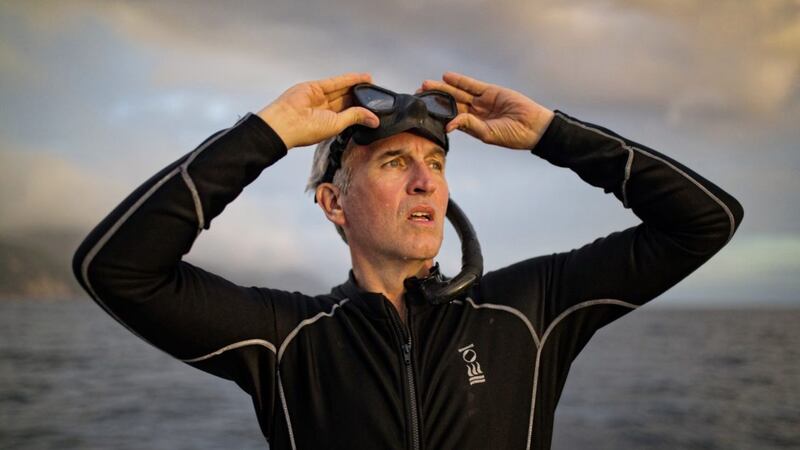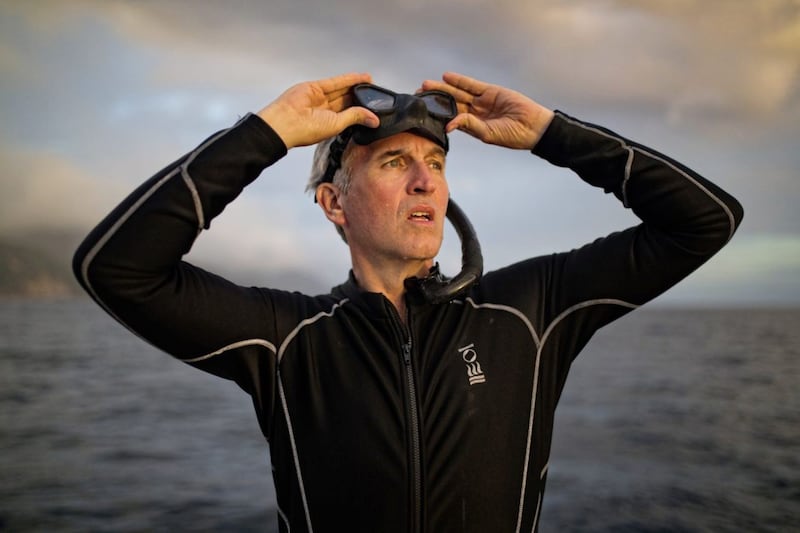WHAT INITIALLY MADE YOU WANT TO CREATE SECRETS OF THE WHALES?
THERE'S a multi-billion-dollar whale-watching industry on Planet Earth, where people go on boats all over the world to see a whale jump or a tail – but they don't really know so much about those lives. So it was really about bringing people into the lives of these whales.
ARE HUMANS AND WHALES MORE SIMILAR THAN WE THINK?
We've often been very clinical and how we view wildlife. But if we begin to understand that whales have personality, they give each other names, they isolate by dialect, they have singing competitions, they have food preferences, they mourn their dead, they do all of these things that used to be thought of as only the domain of humans. So, we're sharing this planet with this alien intellectual species that does things much like we do.
HOW DID DIRECTOR JAMES CAMERON BECOME INVOLVED?
We had met several times over the years, I think there was a bit of mutual respect. He is a National Geographic Explorer and a master storyteller. He can create everything from fictional characters and scenes and sets and story narratives, he can invent the equipment that's needed to film it in 3D and do things that haven't been done before. But he's also a pioneering ocean explorer who builds his own submarines and goes to the deepest part of the ocean to understand it.
HOW DID SIGOURNEY WEAVER GET INVOLVED?
Bringing in Sigourney as the narrator was fantastic. I always thought that would have been fantastic because that female voice, especially for these whales, that are often led by females, was brilliant.
AT ONE POINT, YOU HELP A TRAPPED ORCA; DO YOU EVER WORRY ABOUT UPSETTING THE NATURAL BALANCE OF THE OCEANS?
I've done sea turtle projects where you see the little leatherback babies running down the sand to the ocean, and they're getting eaten by birds. It breaks your heart, but you leave it alone, because that's pure nature. If I see a sea turtle wrapped in line, if I can, I will cut it out, because that's not natural.
In the case of the orca, these are air-breathing animals. Even though that animal could temporarily breathe, you don't know if that's going to change as it gets more entangled. You've got its family sitting there watching it and it's slowed down and stopped essentially asking for help. I think in a case like that, I'd rather beg for forgiveness than ask for permission.
HOW CAN HUMANS HELP SAVE THE OCEANS?
We have to realise that all of our actions have consequences. That we don't live on this planet in a vacuum, that we are intricately connected to nature and everything we do matters. We're dumping 18 billion pounds of plastic every year into the ocean, and we've lost 90 per cent of the big fish in the ocean post-World War Two and we've lost half the world's coral reefs.
It can be as simple as finding better ways of fishing and not having vertical lines that animals get entangled in – and that's going to take some collaborative efforts. Or it could be just being better consumers, informed consumers, voting for people who care about conservation and science.
DOES THE FEELING OF AWE EVER WEAR OFF WHEN YOU INTERACT WITH THESE OCEAN GIANTS?
I mean, it never gets old – if anything, it's addictive. I've been doing this for decades and every year I swear, it gets better.
:: Secrets Of The Whales from National Geographic premieres on Earth Day, April 22, on Disney+



